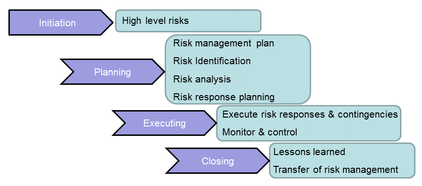Managing Risks on Projects
|
Based on the PMBOK® Guide – 6th Edition and the PMI Practice Standard for Project Risk Management
The value of managing risks on projects depends on the success achieved with the pro-active efforts to minimize the negative impacts of threats and to maximize the positive impact of opportunities. The typical steps of planning for risk management, identifying risks, prioritizing risks, conducting risk analysis and planning the appropriate risk responses are of little value if the selected response strategy is not implemented, monitored and controlled throughout the project. This course addresses all of these aspects incorporating lectures, discussions, and practical classroom exercises. |
|
Course Outline:
01-Fundamentals of Managing Risk on Projects:
03-Identifying Risks:
|
04-Analyzing Risks:
|
Prerequisites:
Delegates must understand the basic principles of project management and must have experience in managing projects.
Duration and material:
Delegates must understand the basic principles of project management and must have experience in managing projects.
Duration and material:
- Course duration:- two days (14 hours) classroom or virtual online instructor-led training in a relaxed learning environment allowing for real-time feedback, questions and answers, and practical exercises.
- Student manual provided.
Please contact [email protected] for more information or a quotation.

